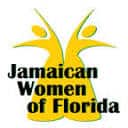Regional Illicit Drug Workshop Opens in The Bahamas
NASSAU, Bahamas – Minister of National Security the Hon. Tommy Turnquest said The Bahamas’ hosting of the National Coordinating Entities (NCE) Workshop, sponsored by the Multi-lateral Evaluation Mechanism (MEM) Unit of the Inter-American Drug Abuse Control Commission (CICAD), is a continuation of the “essential relationship” forged with the CICAD of the Organization of American States (OAS) since its inception.
“The Bahamas was an active participant in the Inter-American Specialised Conference on the Traffic in Narcotic Drugs, convened in Rio de Janeiro, Brazil, in 1986, which led to the establishment of the CICAD,” Minister Turnquest said at the opening ceremony, on July 17. “The Bahamas was an initial Member of CICAD and cooperated in the establishment of the Commission’s formative work programme.
“The hosting of this Workshop for countries of CARICOM is also significant for The Bahamas,” he added. “It comes at a time when we are broadening our participation in the Caribbean Community (CARICOM) Crime and Security regime.
“The work of the regime, and in particular, the CARICOM Implementation Agency for Crime and Security (IMPACS), keeps under active consideration trends in illicit production, trafficking and abuse of narcotic drugs and psychotropic substances, and action taken in this critical area. “
Minister Turnquest said that Executive Director of the United Nations Office on Drugs and Crime (UNODC) Mr. Antonio Maria Costa is “on the mark” in enumerating illicit narcotic drugs and psychotropic substances among the greatest threats to the peace, security and well-being of humanity. It undoubtedly, is for the countries of the Caribbean region, Minister Turnquest said.
“Recent reports, however, give cause for optimism that the initiatives we are taking globally and regionally to combat drug trafficking and drug abuse are having a positive impact,” he said.
Minister Turnquest said the 2007 World Drug Report of the UNODC points to evidence, over the past two (2) years, which indicates that the world drug problem has been contained. The report highlights as this evidence a decrease in the cultivation of coca in the Andean countries, he added.
“It points to a leveling off and in some countries, a decrease in the production and consumption of amphetamine-type stimulants (ATS),” Minister Turnquest said. “Regarding the health warning on high potency cannabis, it indicates that the message against its abuse appears to be getting through. While opium production remains significant, it notes that production is now more concentrated, primarily in the Southern Provinces of Afghanistan.”
Minister Turnquest added that in the drug area, however, optimism must be tempered with caution. The illicit drug trade is dynamic, he said, constantly changing its routes, seeking to develop new markets, and adapting its methods of operation to exploit gaps or weaknesses in the international drug control system. Positive developments in one area or region of the world, therefore, may be offset by negative developments in others.
“Our Caribbean region is strategically situated between source and supply centres of narcotic drugs in Central and South America and profitable markets in North America and Europe,” Minister Turnquest said. “It is this simple fact of geography that has, for decades driven the persistent and continuing illicit transit trafficking in narcotic drugs and psychotropic substances into and through the region.”
Throughout the 1980s and until today, Minister Turnquest said, The Bahamas worked cooperatively with CARICOM and other like-minded states to keep the transit problem in view in international drug control efforts, including in the United Nations Commission on Narcotic Drugs.
“We were the first country to ratify the 1988 Convention against the Illicit Traffic in narcotic Drugs and Psychotropic Substances, which has transit provisions,” he said.
“Concerned as we are about illicit drug trafficking, however, we have even more to be concerned about in our Caribbean region. Established drug trafficking routes are now becoming arms trafficking and migrant smuggling routes. At times, drug trafficking, arms trafficking and alien smuggling become part of the same illicit enterprise. We have experienced a concomitant increase in crime and criminality in our countries, no doubt a result of these merged criminal operations, and particularly arms trafficking.
“Ours is not a region, therefore, that can not let its guard down in combating drug abuse and illicit trafficking. It is from this perspective that the value of the MEM must be viewed. In a balanced and methodical way, it causes the countries of the Americas in general, and the Caribbean region in particular, to assess the progress they are making in combating drug abuse and illicit traffic.”
Minister Turnquest said the MEM process opens up action taken by OAS Member States to scrutiny by other OAS Member States in the Governmental Expert Group (GEG) and more widely, in the CICAD. It does so in a manner, he said, that allows proposals to be made that are aimed at strengthening national systems and improving hemispheric cooperation. The MEM process forms the basis on which CICAD, in cooperation with Member States, can make targeted interventions to impact the drug problem, through specialized training and technical and financial assistance, he added.
“Importantly, the effectiveness of the MEM process is greatly enhanced by the fact that there are no sanctions attached to this uniquely Americas process,” Minister Turnquest said. “Its objectives are in keeping with multilateral cooperation in drug abuse control, that is, coordination of drug control efforts, dialogue and cooperation. It has variously been recognized for its efficacy by the UNODC, INTERPOL, the Inter-American Development Bank and the Pan American Health Organization.”
Competent National Coordinating Entities (NCE) are critical to the accomplishments of the MEM process, Minister Turnquest said. The support that CICAD continues to give to ensuring the effective functioning of NCE will underpin these next two (2) days of training.
“Let me assure you that the attention of The Bahamas participants in this exercise will be focused on getting the most out of this training, to ensure that our responses to the MEM questionnaire and to the MEM process generally will be comprehensive and coherent, and will be submitted on a timely basis, “ Minister Turnquest said. “We now have in place national machinery to enhance our capacity to do just this.
“The Bahamas National Anti-Drug Secretariat (NADS) in the Ministry of National Security is now functional, and its research arm, the National Drug Observatory is being put in place. An overarching responsibility of the NADS is to ensure the timely collection and collation of data required to ensure that The Bahamas meets its reporting obligations in respect of Treaty, Agreements and other requirements in the area of drug abuse and illicit trafficking.”
Minister Turnquest said that the next two days of training should have a positive impact on the work of our NADS and NCE, as he is sure it will have for participants of other NCE from around the Caribbean.
He also recognised and congratulated Ms. Angela Crowdy and the MEM Unit team for their efforts in seeking to improve the capacity of member States.
“I wish to reaffirm the Bahamas Government’s firm resolve in the continuing fight against illicit drug trafficking and the importance that our country places on the multi-lateral approach to drug control.
“I also wish to acknowledge the work of CICAD and thank them for the technical and financial assistance provided to us in the Bahamas, and the role they have played in harnessing the collective energy of its member States to reduce the production, trafficking, use and abuse of drugs in the Americas. On behalf of the Government and people of the Bahamas, I express our sincerest gratitude. I look forward to our country receiving even more assistance as we move ahead in strengthening our drug control institutions.”



